Participants
Convening attendees
Olivia Aguilar
Associate professor of Environmental Studies, Denison University
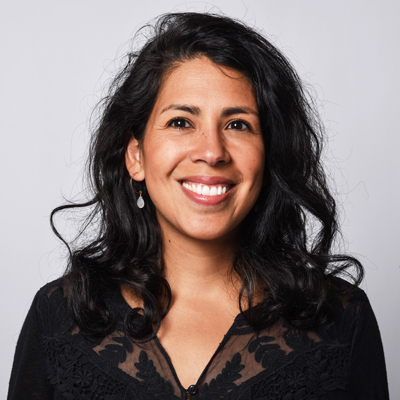
Dr. Olivia Aguilar completed her B.S. and M.S. in Horticulture Science at Texas A&M University where she studied children’s gardens and their effect on youth environmental attitudes. After teaching in public schools, she went on to receive her PhD in Natural Resources at Cornell University in 2009, studying environmental and science education. Her scholarship examines issues at the intersection of environment, education, race/ethnicity, and community. Specifically, her work examines how sociocultural learning theories help to account for learning of marginalized groups in environmental and science contexts through community approaches.
Nicole Ardoin
Associate Professor of Education, Stanford University
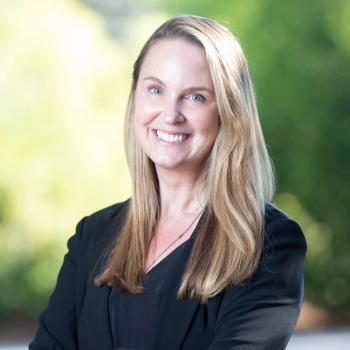
Dr. Nicole Ardoin and her Social Ecology Lab group research motivations for and barriers to environmental behavior at the individual and collective scales. They use mixed-methods approaches to consider the influence of place-based connections, environmental learning, and social-ecological interactions on participation in a range of environmental and sustainability-related decisionmaking processes. Dr. Ardoin and her interdisciplinary group pursue their scholarship with a theoretical grounding and orientation focused on applications for practice; much of her lab’s work is co-designed and implemented with community collaborators through a field-based, participatory frame.
Alison Bowers
Postdoctoral Scholar, Stanford University
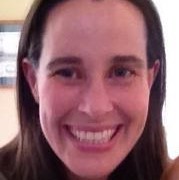
Alison Bowers is a postdoctoral scholar in Dr. Nicole Ardoin’s social ecology lab. She received her PhD in educational research and evaluation from Virginia Tech. During her doctoral studies, she was also a researcher and consultant with a number of university faculty and environmental nonprofits. Her background and experience include working as a field-based environmental educator and at the national-scale with nonprofit conservation and education organizations such as Project Learning Tree. Dr. Bowers also has worked as a special education teacher.
Craig Brookins
Associate Professor of Psychology, North Carolina State University
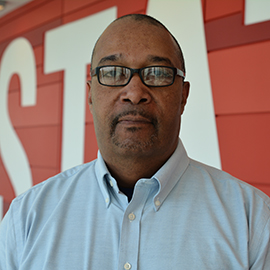
Dr. Craig Brookins’ research focuses primarily on Community Psychology (generally) and more specifically on interventions designed to promote psychological health and development for youth and adults. Topical areas have included adolescent rites-of-passage, adolescent pregnancy prevention, child abuse and neglect prevention, independent Black Schools, effective parenting, and, most currently, understanding the role of an optimal world view in the larger construct of psychological wellbeing. His work has been conducted in public and private educational institutions, community centers, and human service agencies.
K. C. Busch (session organizer)
Assistant Professor of Education, North Carolina State University

An assistant professor in the Department of STEM Education, Dr. K. C. Busch specializes in informal science learning. Drawing on research from the fields of science communication and environmental psychology, Busch has investigated the language used to teach about climate change in educational settings. Her research serves as a counter-narrative to science education literature’s concentration on what students do not know about climate change. In contrast, Busch focuses on the framing of climate change in the science education system, and how that framing affects youth perception of the problem and their capacity for creating solutions.
Sarah Carrier
Associate Professor of Science Education

Dr. Sarah Carrier works with undergraduate pre-service teachers and graduate level elementary teachers expanding their vision and practices of science instruction as they develop into effective practitioners communicating science content, inquiry, and practices to children. One area of research has focused on environmental education and science instruction using the outdoors as a setting for learning, including schoolyard science, providing strategies that contribute to elementary students’ environmental science knowledge, attitudes, and behaviors. Dr. Carrier has also been involved in studies that support interdisciplinary connections in the pursuit of science literacy.
Charlotte Clark
Assistant Professor of the Practice of Sustainability, Duke University
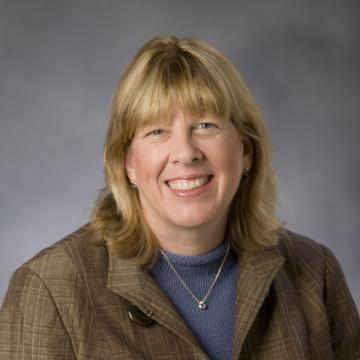
Dr. Charlotte Clark’s primary interest is the intersection of collective learning and collective action. She studies how environmental education can contribute to management of common pool resources, and how informal learning processes engage with behavior change for individuals and communities around environmental issues. She applies these concepts in work around campus sustainability, and leads the Education Subcommittee of Duke’s Campus Sustainability Committee. She uses and teaches qualitative research methods, including use of qualitative research software.
Caren Cooper
Associate Professor of Forestry and Environmental Resources, North Carolina State University

Dr. Caren Cooper is an advocate for the practices of Citizen Science, Open Science, and Science Communication, pursuing scholarly inquiry into these areas, and bringing them all together to achieve Public Science. She is dedicated to training and mentoring students to become public scientists so they can pursue careers that weave science into the fabric of society. Dr. Cooper enjoys designing citizen science programs for the investigation of social-ecological systems (also called coupled natural and human systems). She believes that to understand natural systems, we also have to understand human systems because our species has a pervasive influence on nature.
Bethany Cutts (session organizer)
Assistant Professor of Parks, Recreation, and Tourism Management, North Carolina State University
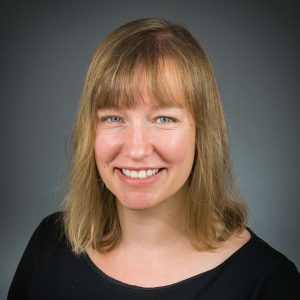
Dr. Bethany Cutts uses geospatial analytics to identify science-driven solutions to enhance the social, economic, and ecological well-being of communities, particularly through recognizing and ameliorating historical patterns of marginalization. She combines geographic information systems with social network analysis and innovative public participation methods to explore local and regional sustainability solutions in the context of global change. Her interests include participatory mapping, environmental justice, and geovisualization.
Elizabeth DeMattia (session organizer)
Lead research scientist, Duke University Marine Lab Community Science Initiative

Dr. Elizabeth (Liz) DeMattia is the lead Research Scientist for the DUML Community Science Initiative. Liz has more than 20 years experience conducting ecological research and developing environmental outreach for community-based conservation programs; and is excited to work with researchers, teachers and students to create community science programs and activities.
Noah Feinstein
Associate Professor of Community & Environmental Sociology and Curriculum & Instruction, University of Wisconsin–Madison
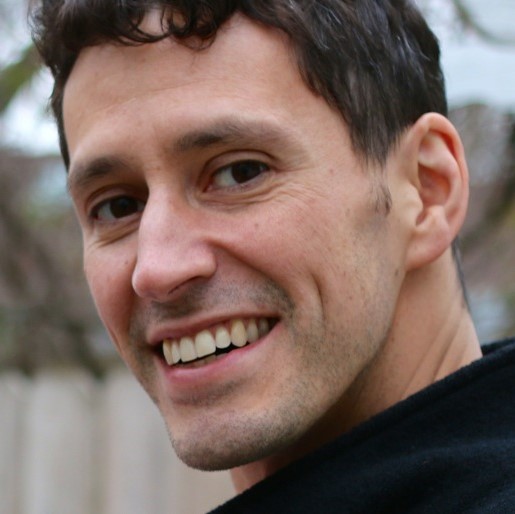
Dr. Noah Feinstein’s research focuses on how, when, and why people interact with science outside of school and research settings, particularly on the rare occasions when it becomes personally important to them. He has become increasingly interested in the applications of my work to climate change. He studies how people understand and use science as they confront health and sustainability challenges in their personal, social, and political lives. He recently contributed to a new National Academies report on science literacy, and am currently studying how science museums seek to become more equitable institutions.
Jean Goodwin (session facilitator)
Professor of Communication, North Carolina State University
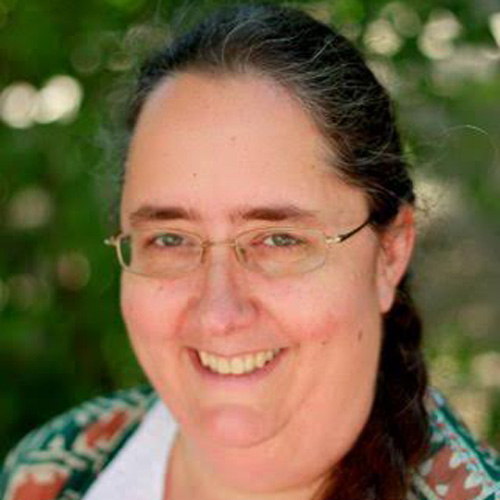
Dr. Jean Goodwin studies how scientists can communicate appropriately and effectively to non-expert audiences. Goodwin uses discourse analysis to tease out the ways outstanding scientist-communicators address difficult audiences on topics such as GMOs and climate change. She also uses conceptual analysis to connect these practices to broader theories of the responsibilities and roles scientists can undertake in civic life.
Marianne Krasny
Professor of Natural Resources, Cornell University

Dr. Marianne E. Krasny’s work connects environmental education and social-ecological systems theory in urban and other settings in the US and internationally. Her research investigates how environmental education programs situated in civic ecology practices foster resilience in social-ecological systems. In particular, she and members of the Civic Ecology Lab investigate attributes of resilient social-ecological systems, including social learning, social capital, sense of place, participatory monitoring, and provision of ecosystem services through citizen-driven stewardship initiatives.
Danielle Lawson
Postdoctoral Scholar of Parks, Recreation, and Tourism Management, North Carolina State University
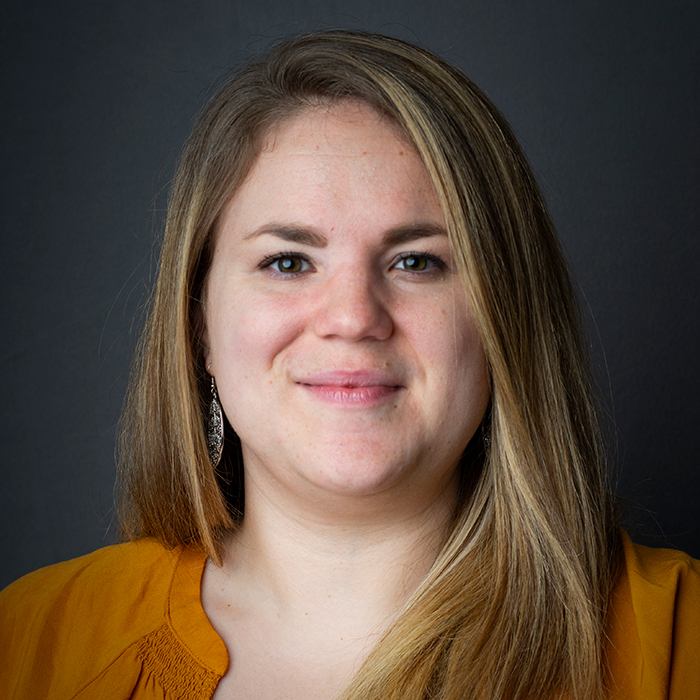
Dr. Danielle Lawson is a USDA-NIFA Postdoctoral Scholar. Her research aims to empower members of current and future generations to make change in issues associated with global health (human and ecosystem) and well-being. Her work focuses on three interrelated thematic areas: (1) Intergenerational Learning, (2) Environmental/Outdoor Education, Interpretation, & Outreach, and (3) Social Justice. With each project, she engages members of the community throughout the research process. Dr. Lawson’s doctoral work demonstrated that children can influence their parents’ views on climate change through intergenerational learning.
Nils Peterson
Professor of Forestry and Environmental Resources, North Carolina State University
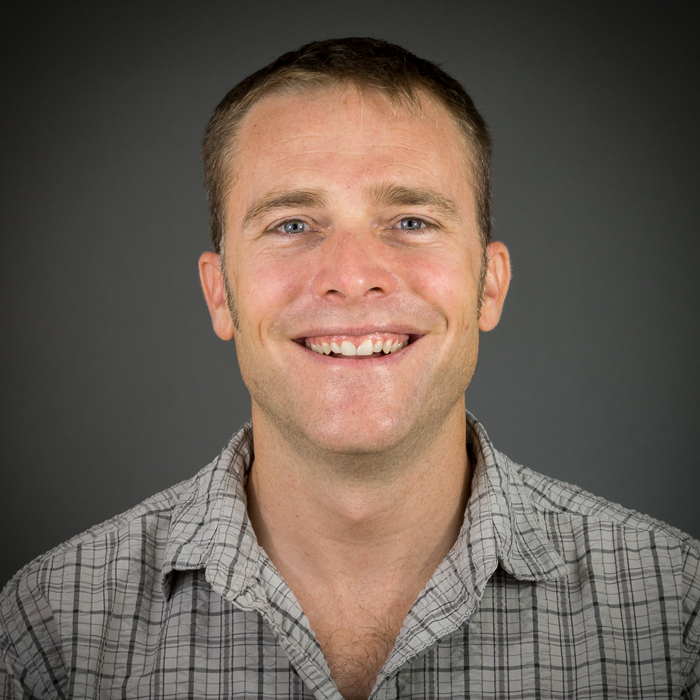
Dr. Nils Peterson and the scholars affiliated with his lab work to unravel the drivers of environmental behavior on which global sustainability depends. They use environmental education, conservation development, environmental conflict, and environmental policy making as natural experiments to test hypotheses, and occasionally run experiments of their own! His research is predicated on the belief that human quality of life emerges in a dialectic with the environments we inhabit, and that protecting and restoring those environments is one of our greatest opportunities.
Michael Reiskind
Associate Professor of Public Health Entomology, North Carolina State University
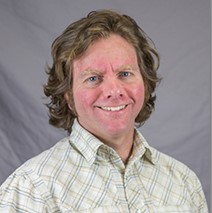
Dr. Michael Reiskind studies the ecology of vectors of disease, with an emphasis on mosquito ecology. His team has worked extensively on the container Aedes mosquitoes responsible for dengue, chikungunya, and Zika virus transmission, with investigations spanning scales of inquiry from the regional population genetics to individual behavior. His lab is also interested in patterns of mosquito diversity and the consequences of vector diversity for disease transmission, using dog heartworm disease as a convenient study system.
Kathryn Stevenson (session organizer)
Assistant Professor of Parks, Recreation, and Tourism Management, North Carolina State University
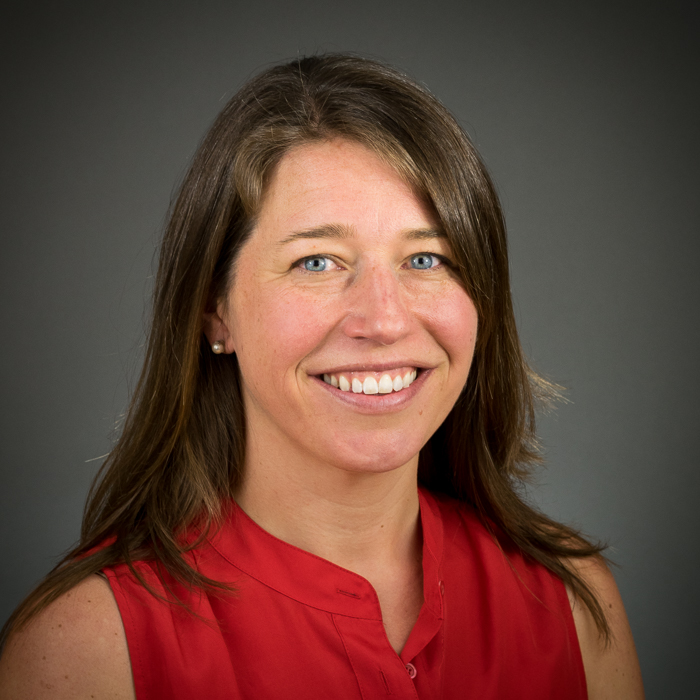
Dr. Kathryn Stevenson and the talented team associated with her lab work to identify drivers of environmental literacy among K-12 students. We uncover and examine the myriad of benefits of time in nature and environmental education for children, and we also highlight how children might be agents of change in the context of environmental challenges.
Edna Tan
Associate Professor of Science Education, University of North Carolina at Greensboro

Dr. Edna Tan takes a critical, sociocultural approach in her work with minoritized youth and science teachers across in/formal settings. She focuses on how minoritized youth can be empowered in their STEM engagement and how such modes of empowerment, understood in terms of youths’ identity work in STEM and critical agency, can be mobilized across STEM-infused settings to position minoritized youth as capable and valuable members in STEM. Her current collaborative projects include working with minoritized youth in community-based makerspace settings at the Boys and Girls club and at a refugee-residential community center.
Mele Wheaton
Senior Research Scholar of the Social Ecology Lab, Stanford University

Dr. Mele Wheaton is the senior research scholar in the laboratory of Dr. Nicole Ardoin. Her research interests include learning in out-of-school contexts, pro-environmental behavior, and nature-based tourism. As lead on a variety of projects, Mele has studied behavior change in ecotourists in Galapagos and California, environmental identity and action in high-school students participating in an intensive conservation education program, and professional development in environmental educators.
Graduate student attendees
Lynn Chesnut
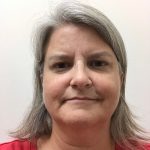
Doctoral Student in Science Education, North Carolina State University
Lynn Chesnut works with Dr. K. C. Busch studying STEM Education. Her research interests include barriers to scientific literacy, social justice in science education, and environmental justice.
Lauren Gibson (session organizer)

Doctoral student in Parks, Recreation, and Tourism Management, North Carolina State University
Lauren Gibson is a doctoral student in Dr. Kathryn Stevenson’s Environmental Education Lab. Her dissertation focuses on community-level environmental literacy. Specifically, she will be using an experimental design to see how environmentally-literate high school students might spread environmental literacy throughout their community via community outreach projects.
Jenna Hartley

Doctoral Student in Parks, Recreation, and Tourism Management, North Carolina State University
Jenna Hartley is a doctoral student in Dr. Kathryn Stevenson’s Environmental Education Lab. She is interested in how citizen science-based environmental education with kids may translate to community-level learning.
Archana Kannan
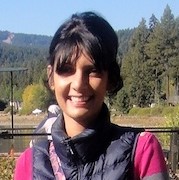
Doctoral Student in Science Education, Stanford University
Archana Kannan is a doctoral student in Dr. Nicole Ardoin’s social ecology lab. Her current research interests include evaluation in informal education, developing innovative measures of learning, and professional training for informal educators.
Anna Lee

Doctoral Student in Environment and Resources, Stanford University
Anna Lee is a doctoral student in Dr. Nicole Ardoin’s social ecology lab. She is interested in environmental decision-making among producers and consumers in the food system.
Aparajita Rajwade
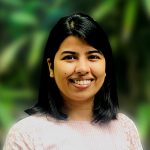
Doctoral Student in Science Education, North Carolina State University
Aparajita Rajwade works with Dr. K. C. Busch studying STEM Education. Her research interests focus on understanding the positive impacts of environmental education on children from underprivileged, disadvantaged communities.
Caitlin Reilly

Master’s Student in Parks, Recreation, and Tourism Management, North Carolina State University
Caitlin Reilly is a master’s student in Dr. Kathryn Stevenson’s Environmental Education Lab. She is interested in how getting kids on farms may promote support for local food systems through families.
